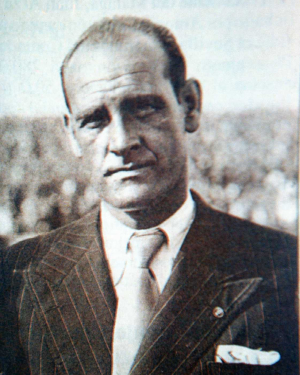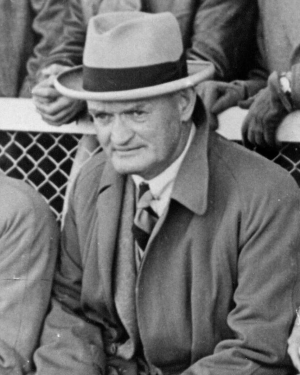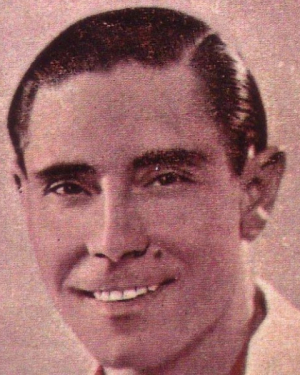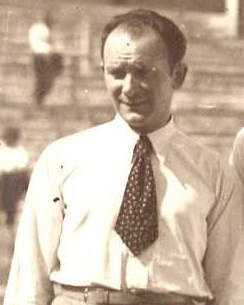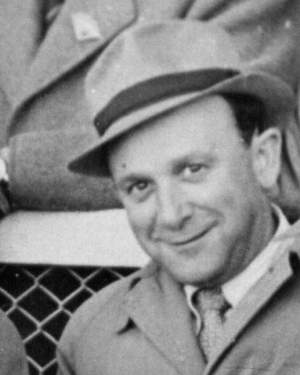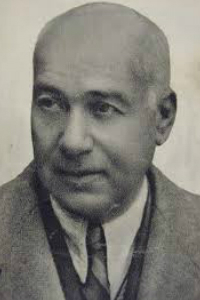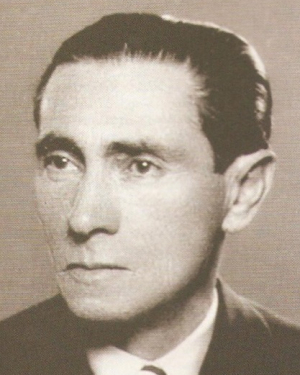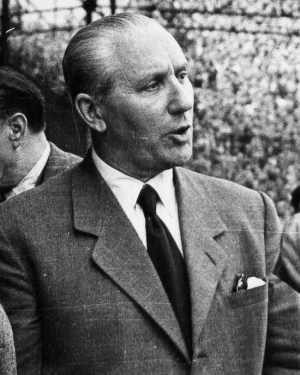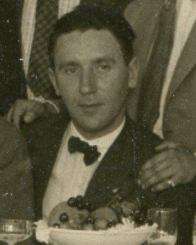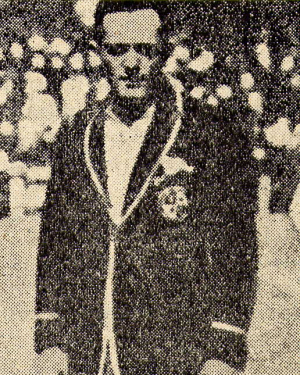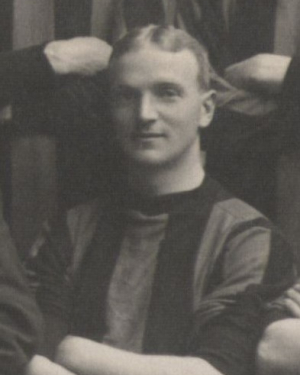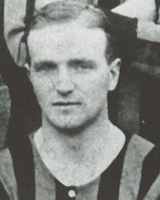The Basque coach led the team for two seasons, from 1947 to 1949. In his first season, the team won the Copa del Generalísimo. In the league, he placed the club in fifth and eighth position.
The Irish coach managed Sevilla FC between 1942 and 1945. His contribution to the club was very important, as in his first season he achieved the league runners-up spot. In the following season he achieved a creditable third place and in his last season he left the team in tenth place.
The coach from Toledo took over the reins of the team in the 1941-1942 season, but was unable to finish the season due to illness with only two games left and in sixth position. Pepe Brand would be in charge of closing the football season started by Victoriano de Santos, who would die months later. In 1944, Sevilla FC organised a charity match in his honour, with the proceeds going to the family of the coach from La Mancha.
A Sevilla FC player since he was a child, he coached the team between 1938 and 1942. His successes included two Andalusian Cups and the Spanish Championship in 1939. In the 1939/40 season he led Sevilla FC to the runners-up spot in the Spanish League. In the 1941/42 season he replaced Victoriano Santos when the latter fell ill.
An ex-player from Alicante , he joined the club from Sporting Club de Madrid. He managed the team in the Second Division between 1930 and 1933. The results obtained were not enough to win promotion to the top flight, but he managed to win the Andalusian championship on two occasions.
In 1928, after spells on the bench at Real Sociedad and Athletic Club, the Hungarian coach arrived at Sevilla FC. He remained at the club for two seasons, twice winning the Andalusian championship and topping the Second Division in the 1928/29 season, but failing to win promotion after losing the promotion play-off against Racing Santander.
He was manager and coach of Sevilla FC in three periods: from 1925 to 1928, from 1933 to 1936 and from 1945 to 1947. He won three Andalusian Cups, a Second Division Championship that led to promotion to the top flight, a Spanish Championship in 1935 and a League in 1946, the only one that Sevilla FC has won to date. He later held the post of technical secretary. His role was crucial to the Club's history.
After the departure of O'Hagan, the former Sevilla player took over as coach of the 'Blanquirrojo'. He achieved important victories in friendlies against important opponents and lifted the seventh Andalusian Cup title with a 3-0 win over Real Betis. His elimination from the Spanish Cup at the hands of Atlético de Madrid led to his departure as coach. He continued his career as a referee.
After a brilliant playing career at various clubs in Ireland, England and Scotland, earning up to eleven caps for Ireland between 1905 and 1909, Mr O'Hagan enlisted in the British Army during the First World War, spending three years on the French and Belgian fronts.
He would later begin his coaching career at Norwich City in England, arriving in Seville in 1923 under the guidance of the shipping clerk MacAndrew as Mr. Evans, a famous member of the club. He could be considered the first proper coach of Sevilla FC. During his time at the helm of Sevilla (1923/24 season), O'Hagan managed to retain the Andalusian championship title for the club, counting all his matches as victories in that competition.
During the early years of the club, as early as 1890, the functions of what we understand today as the figure of the coach would be assumed by the captain of the team, thus continuing the British tradition, embodied in the inheritance received through many of the founders of the club. Thus, the position of captain was reserved only for the chosen ones, as his functions went far beyond wearing an armband or being the first player to take the field.
The captain was the man in charge of selecting the players and establishing their positions on the pitch. Therefore, he had to be a man of strong personality, with a gift for leadership and firm in enforcing his instructions.
He also had to be a good enough player to be in the first team, having a perfect knowledge of the game and its rules, because in case of any conflict, in the absence of a referee, he and the opposing captain were in charge of settling it.
His position was usually in defence, as this was the place from where he could best see and direct the play of his men during the contest. In this way, we could say that Hugo MacColl, Sevilla FC's first captain, was the first person in charge of directing the Sevillista ship on the pitch.
The figure of the coach, as we know it today, was not definitively established in Spanish football until well into the 1920s, with the first signs of professionalism. Until then, different members of the Sevillista club - captains such as Valenzuela, Alba, Tornero and the legendary Kinké, the great architect of the emergence of the Sevillista school - would later take up the baton left by Hugo MacColl to lead his men to victory. At the same time, as the 20th century progressed, other members of the club, club members such as Eugenio Eizaguirre and Arturo Ostos, began to act as first team coaches.
It was not until the arrival of Irishman Charles O'Hagan that there could truly be considered to be a coach in the modern concept of the role of a coach.



 Spanish
Spanish
 English
English
 عربي
عربي
 中文
中文
 日本語
日本語
